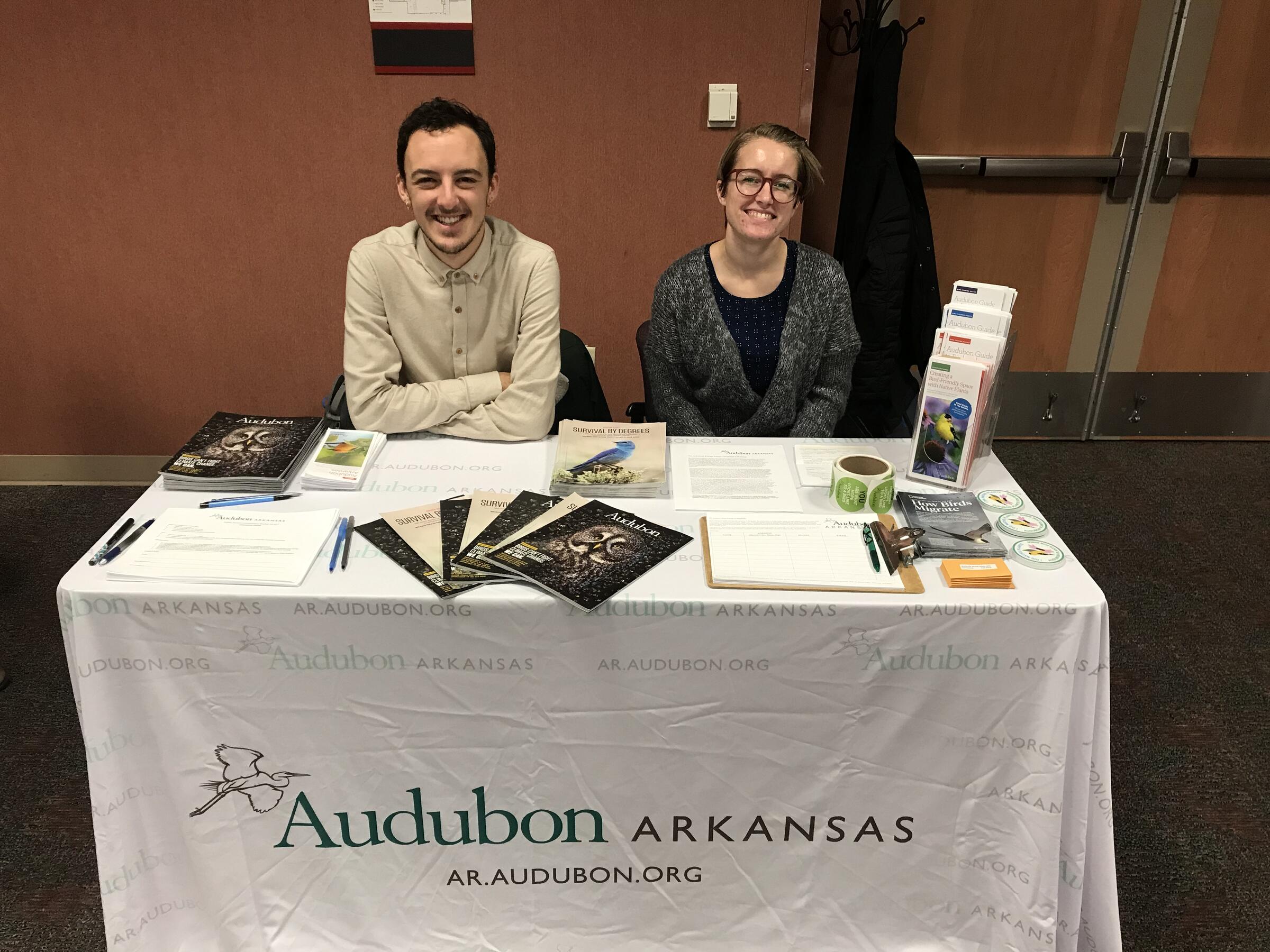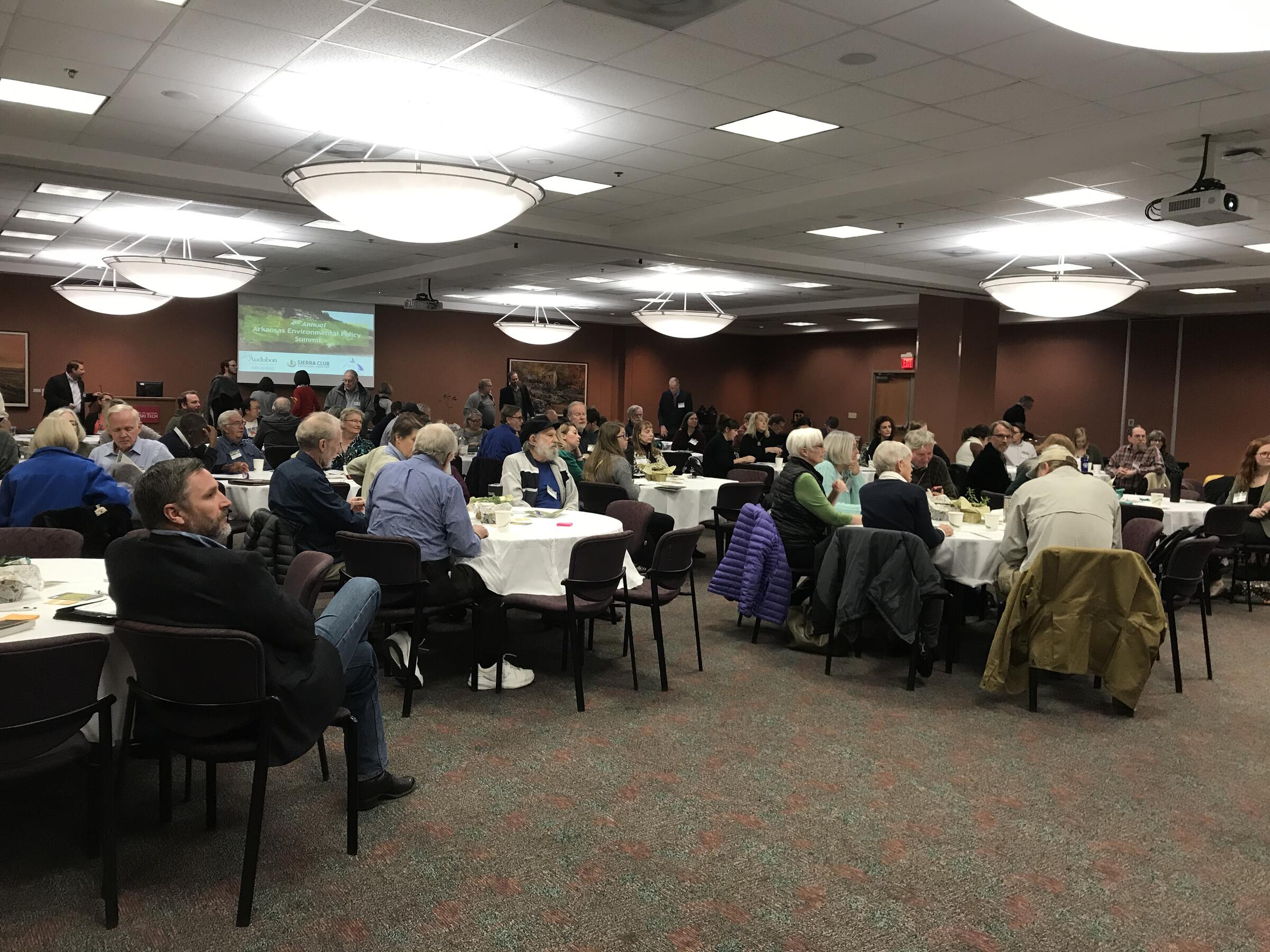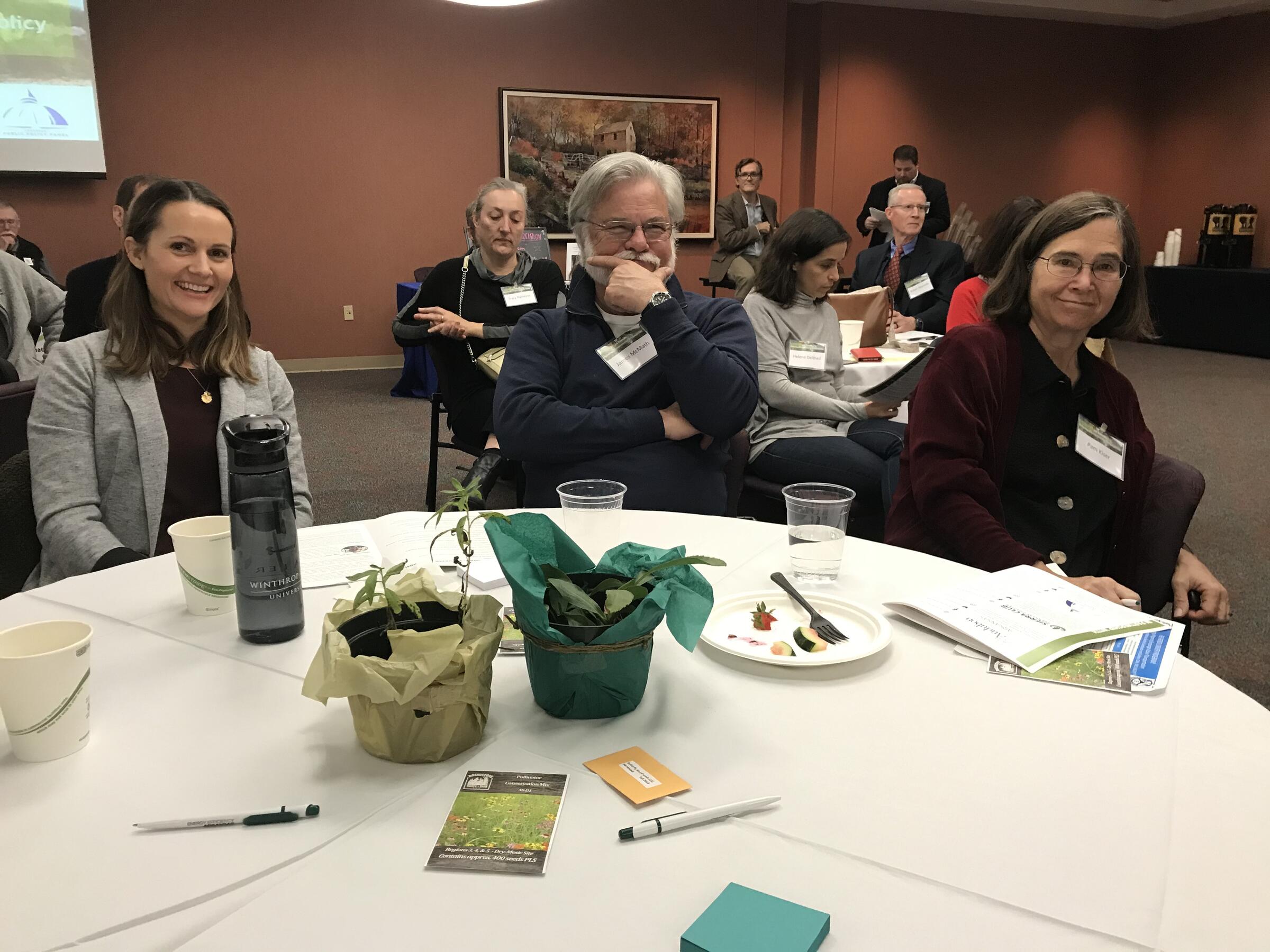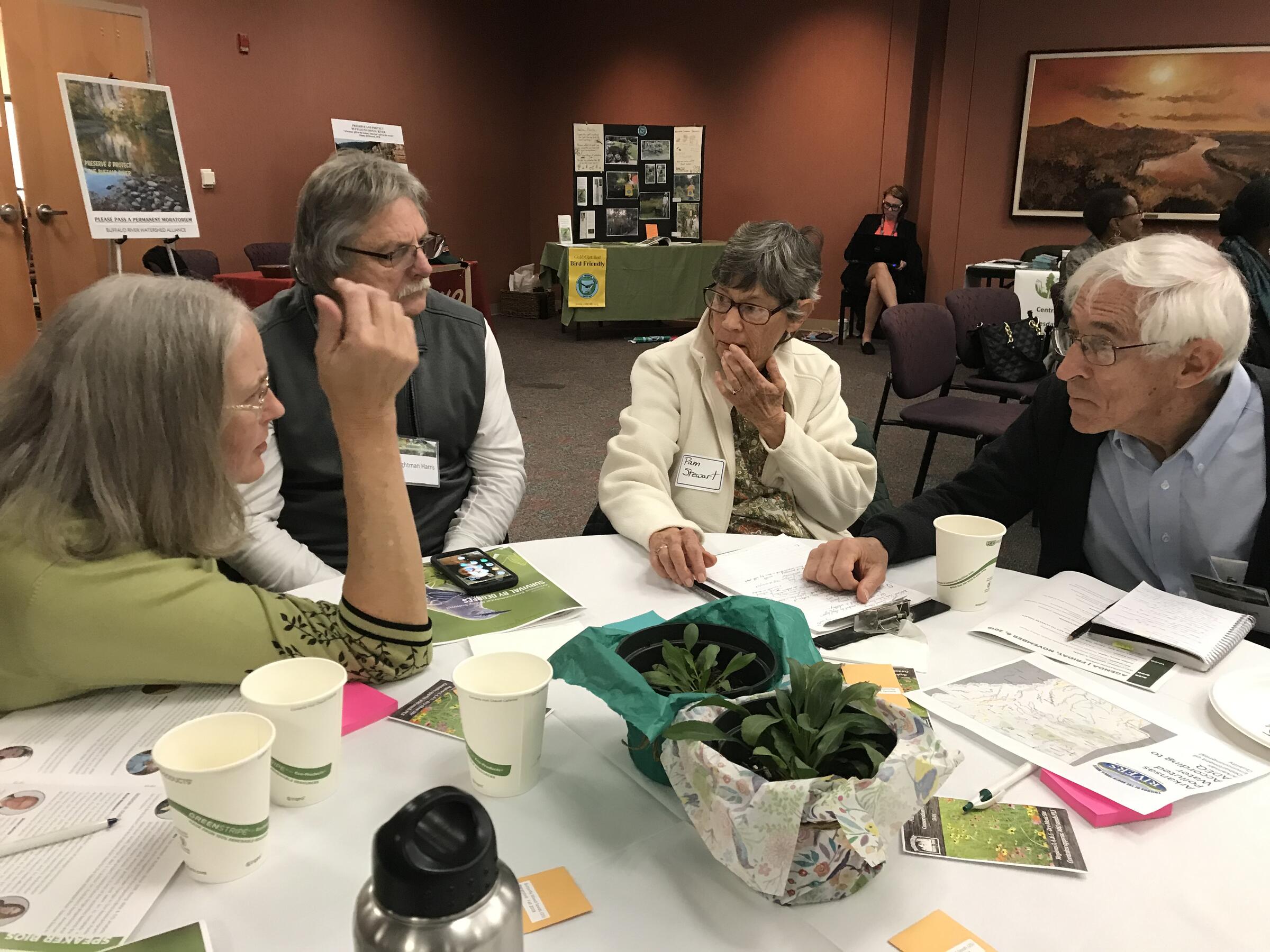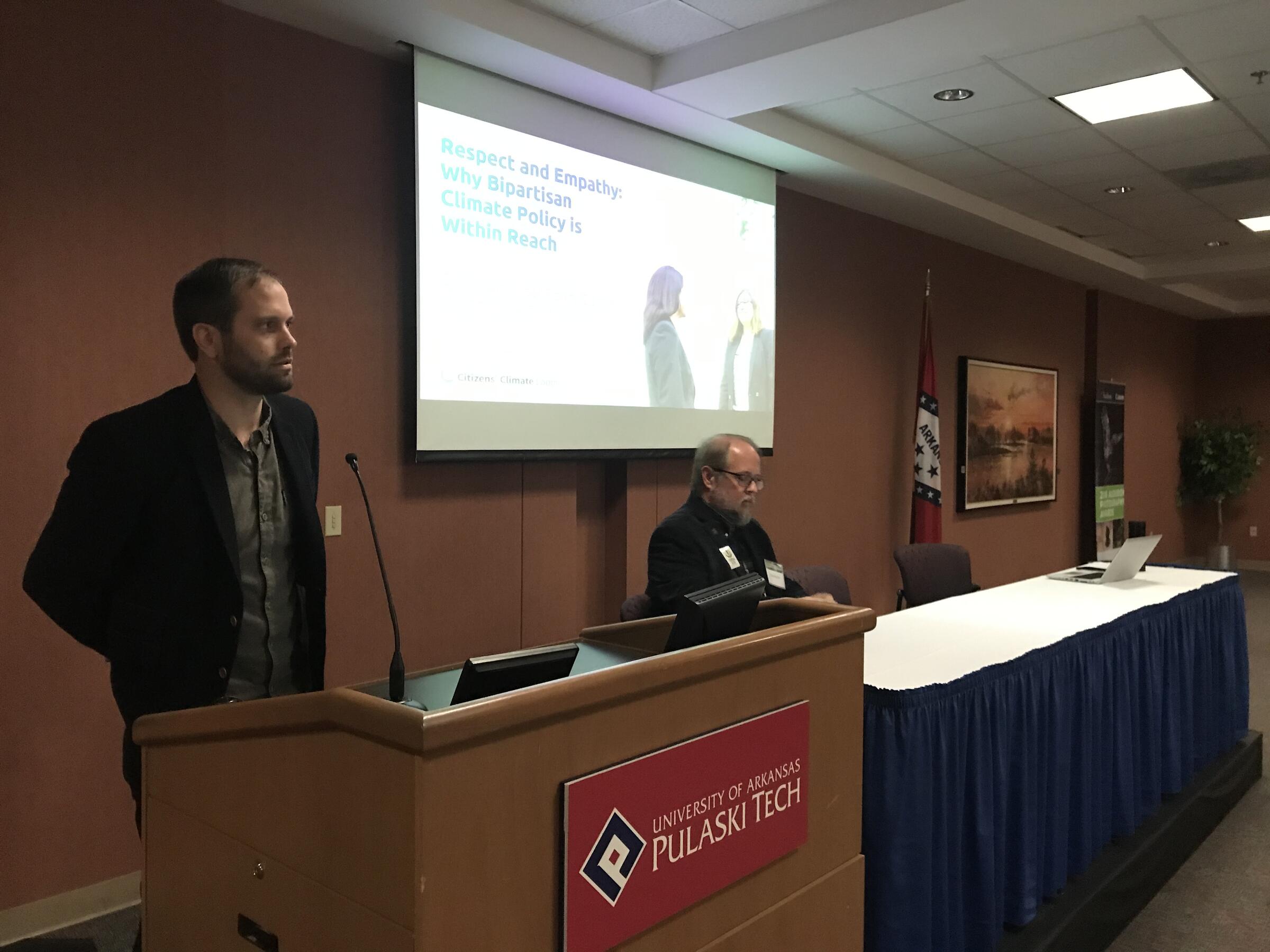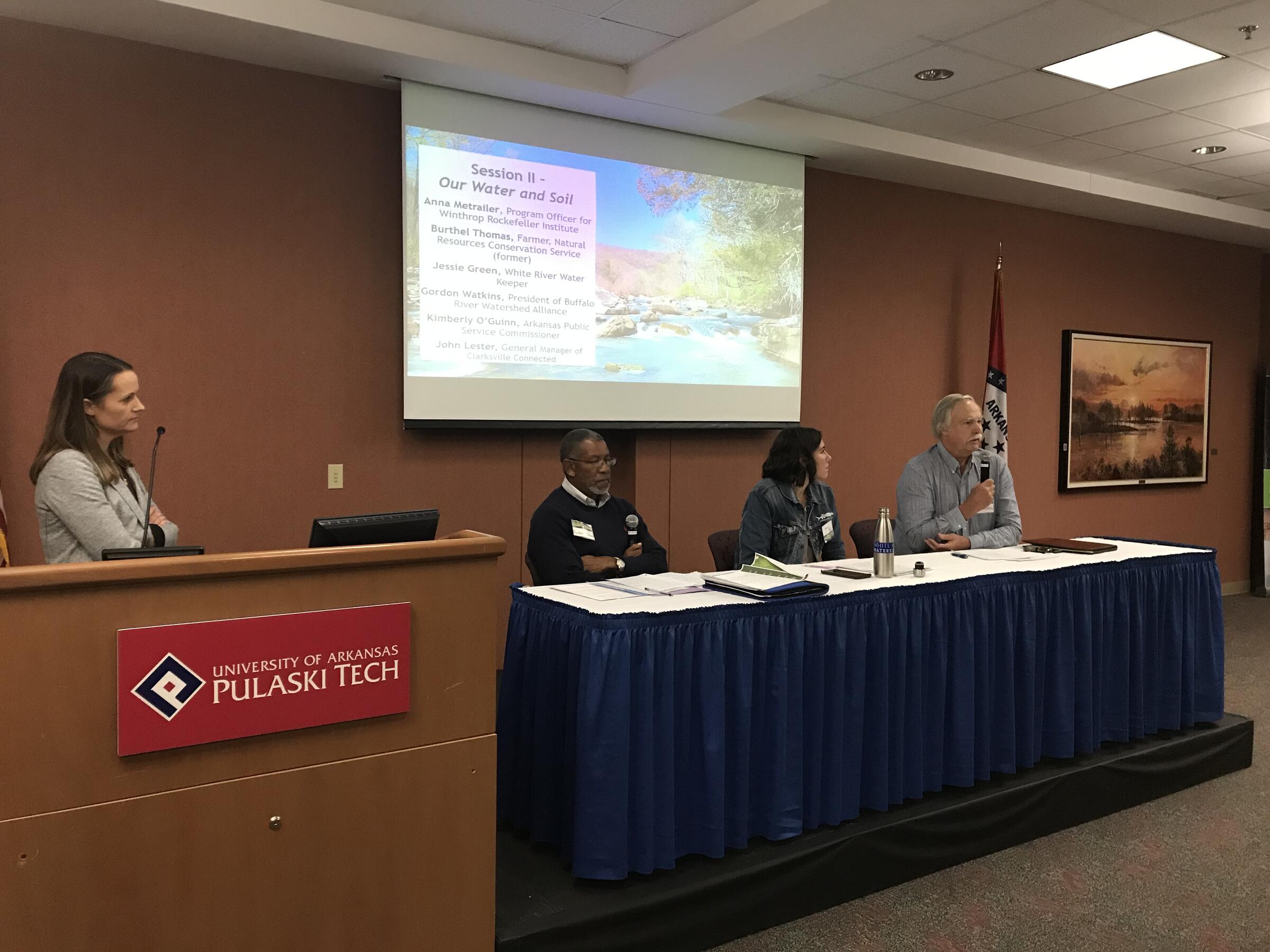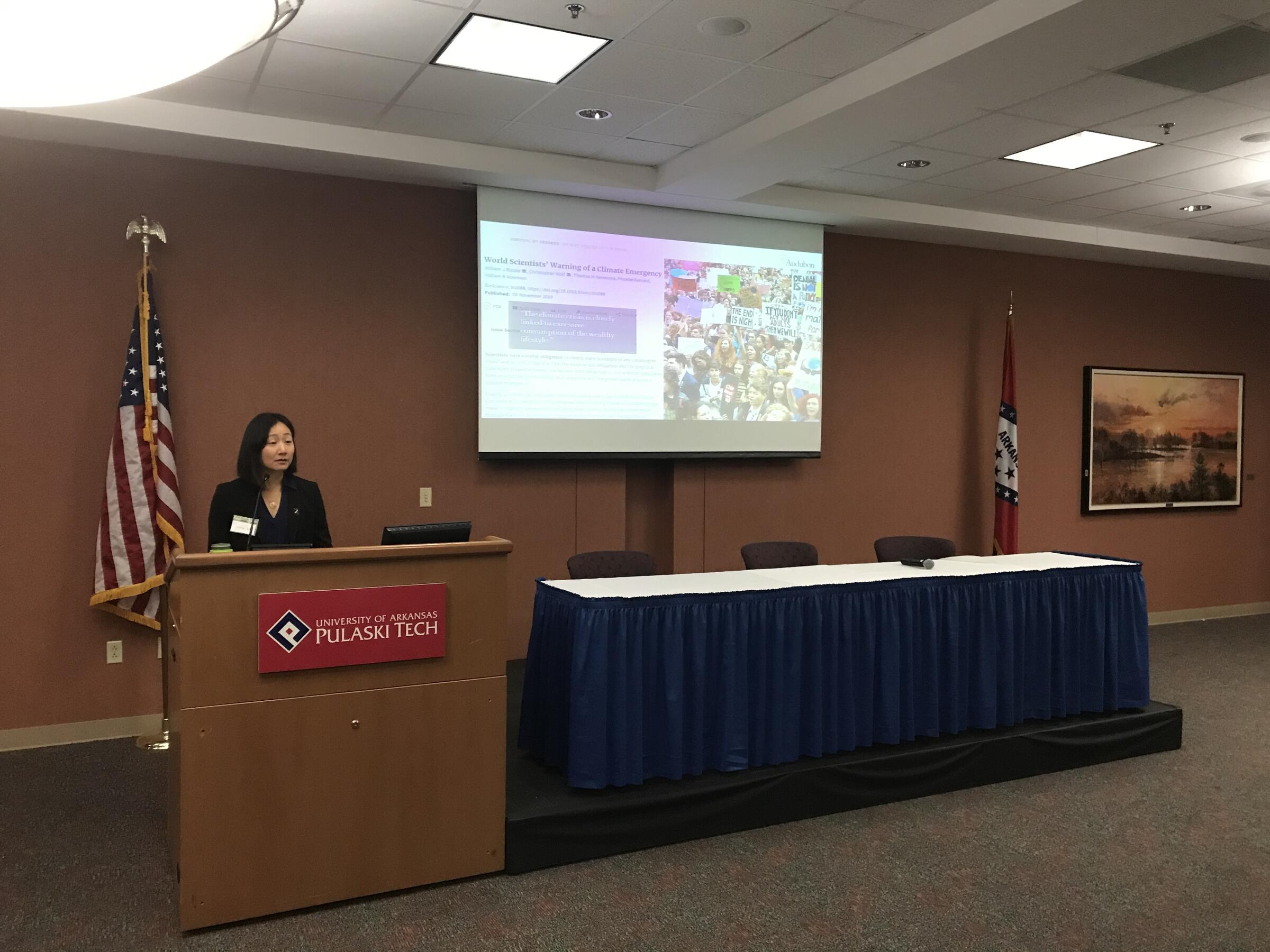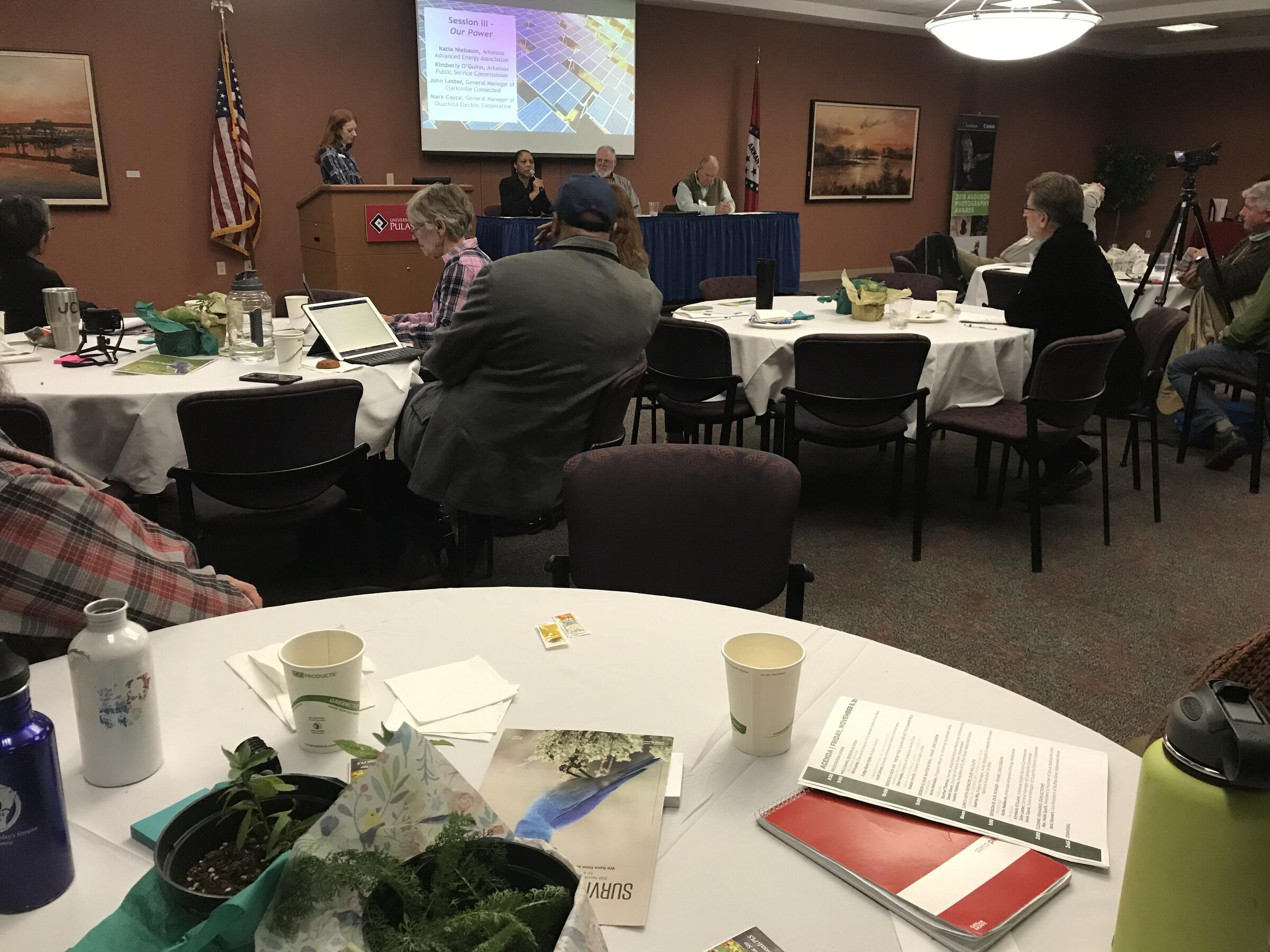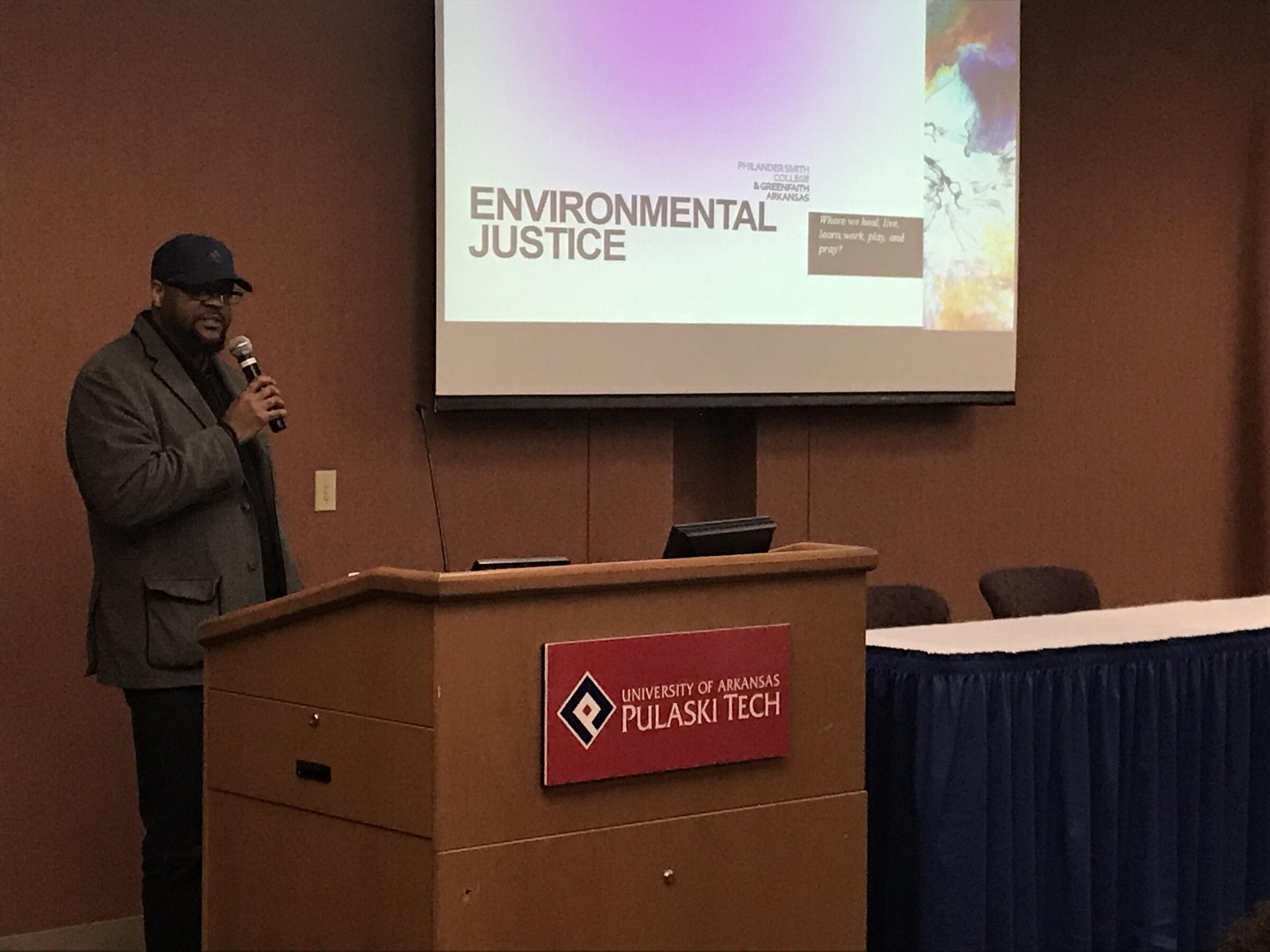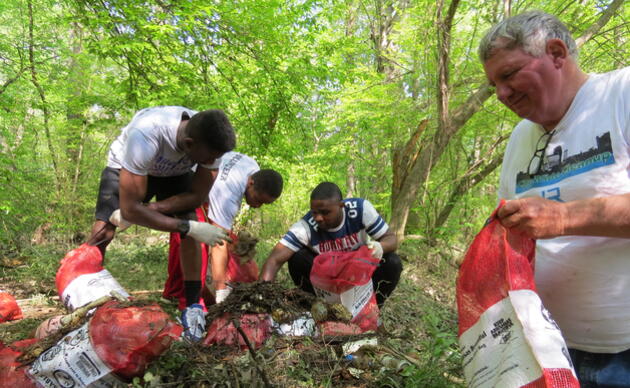At UA Pulaski Tech on November 8th, Audubon Arkansas, the Arkansas Sierra Club, and the Arkansas Public Policy Panel hosted the 4th Annual Arkansas Environmental Summit. The day-long event — titled “Survival by Degrees” — featured speakers and panels on issues of pollution and the status of clean air, water, and soil initiatives in Arkansas, as well as presentations on climate change and the fight for environmental justice.
Attendees were offered a wide-ranging look at the status of the environmental movement in Arkansas and a variety of ideas for reform. The Arkansas Citizens’ Climate Lobby presented on the policy known as “Carbon Fee and Dividend,” which would add a small tax on extracted carbon at its source to be returned to Arkansan citizens as a monthly check.
The panel titled “Our Water and Soil,” meanwhile, focused primarily on the pollution and the issue of fertilizer overuse which results in suffocating algal blooms in Arkansas’s rivers. Gordon Watkins, lifelong farmer and President of the Buffalo River Watershed Alliance, gave his perspective on permaculture — an agricultural practice that involves cycling crops and creating functioning ecosystems that require no fertilizer. “I am still working on turning a profit, though” he added with a laugh.
The keynote address was delivered by Joanna Wu, an avian biologist and project manager for the National Audubon Society. She presented the core findings of "Survival by Degrees," Audubon's recently-released study on climate change and its effects on North American birdlife, which found that 389 bird species — accounting for two-thirds of all North American birds — are vulnerable to extinction because of climate change. She warned that “Arkansas is expected to see more flooding and droughts… Climate change will disrupt birds’ livelihoods just as it will disrupt ours.”
The afternoon’s panel was on clean energy policy in Arkansas. Their free-flowing discussion covered futuristic technology such as liquid energy storage as well as more mundane questions of infrastructure spending. The panelists devoted a sizable portion of their time to the debate over solar policy in the state, a hot-button issue that has been at the fore for the better part of a decade and will come to a head at a Public Service Commission hearing this December. On balance, their message was optimistic. John Lester, in closing, claimed that, “when we can bridge the reliability chasm — batteries, liquid energy storage — that’s when the game really changes… [the transition to clean energy] could happen in 5-10 years.”
The Summit was closed by Malik Saafir, an environmental justice activist with the group Green Faith. A charismatic figure, Saafir held the room in thrall as he outlined a vision of environmentalism and conservation that seamlessly includes issues of social justice. “People of color throughout the world realize that because of their lack of power in the culture in which they reside… they were placed in environments that were toxic. They are equally important to our cause,” he explained to sustained applause. “All life was created by God and all life is seen equal in the eyes of God. We can’t value one species over others. The Abrahamic tradition speaks of God creating all beings equally, and we have to be stewards over this creation.”

